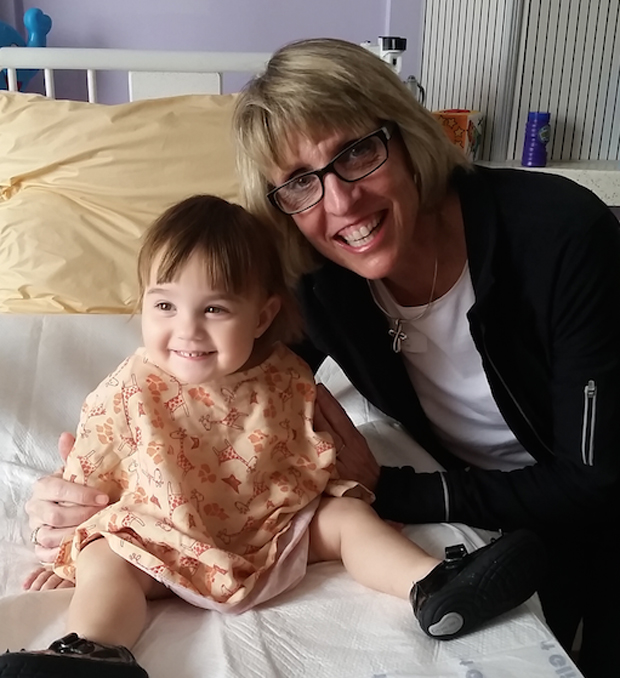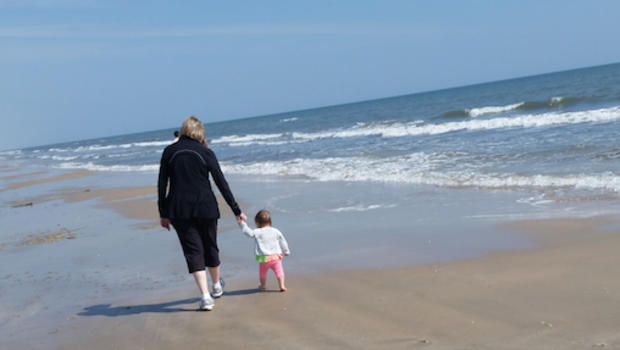Grandmother donates kidney to toddler granddaughter
When Kate Boddie gave birth to daughter Clara last summer, she knew immediately something was wrong. Though doctors told her during pregnancy her daughter may have kidney complications, she never dreamed Clara would be diagnosed with End Stage Renal Disease (ESRD) at just 3 days old. "It hit me like a ton of bricks," Boddie told CBS News. "It was the scariest moment of my entire life."
Doctors told Boddie and her husband Daniel that Clara would need a kidney transplant in order to grow properly and have a normal life. Baby Clara was put on dialysis immediately. When both of her parents were found to be ineligible donors, Clara's grandmother Cindy Smith stepped in.
"I always knew it was going to be me," Smith said. "From the very beginning I knew I was going to be the one to give her my kidney."
ESRD occurs when the kidneys, which normally clear waste and toxins from the blood, can no longer support the body's needs, functioning at about 10 percent their normal rate. There is no cure and the only option for treatment is dialysis or a kidney transplant. In adults, ESRD is the last stage of chronic kidney disease, but in children, the majority of cases are genetic.
"About 1 percent of patients with ESRD are children," said Dr. Eileen Brewer, Clara's doctor and Medical Director of Kidney Transplant at Texas Children's Hospital. "It's a very different disease than what occurs in adults."
Clara started receiving dialysis when she was 6 days old and remained on it until she was big enough to receive an adult kidney. "Babies need to get a little bit bigger to make the surgery possible," Brewer said. "We are able to transplant adult kidneys into babies, which is better than transplanting baby kidneys into babies because the blood vessels are so small and have clots in them," Brewer explained.
Boddie described the process as "really scary and frustrating," especially when she and her husband were both told they would not be able to donate their organs to their donor. "It was heartbreaking to learn I couldn't do this for my child," she said. But relief quickly followed when Smith, 54, was deemed a good match.
"I've always tried really hard to stay in shape," Smith said. "And I feel like all of that work I've done to stay healthy was leading up to this, being able to give Clara a chance at a normal life."
Clara, who had the surgery at the end of March, is now a healthy, thriving 21-month-old. Her family describes her as "lively, outgoing, and an easy-going, sweet child." She and her grandmother enjoy singing, playing, reading, and taking walks on the beach together. "She's incredibly fun to be with," Smith said.
Clara's mother and grandmother say that while the whole ordeal was terrifying, it also strengthened the bond between the three generations. "Kate was always close with her grandmother so I think that the idea of me doing this and allowing Clara and I to have that same kind of relationship has meant a lot to Kate," Smith said.
The family plans to spend this Mother's Day weekend together. "We don't have huge plans but we'll be together and do something family-centric," Boddie said. "It's a good time of year to have this all happen and it's a great opportunity to say thank you to my mom again."

